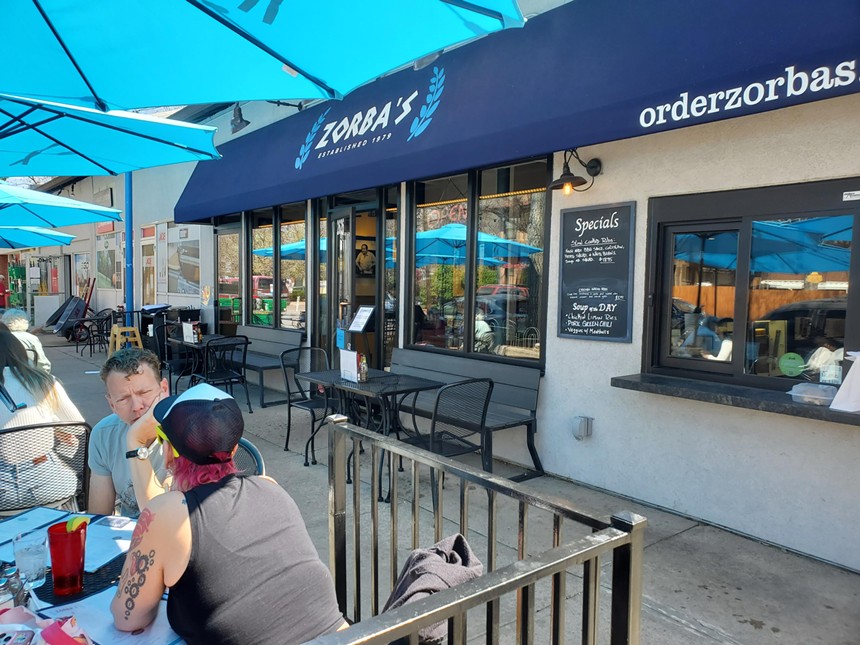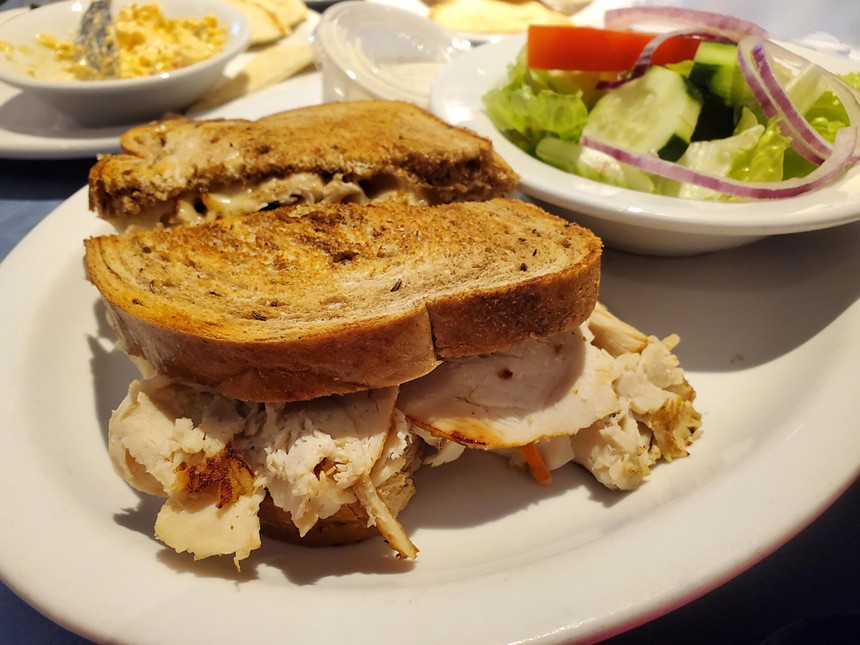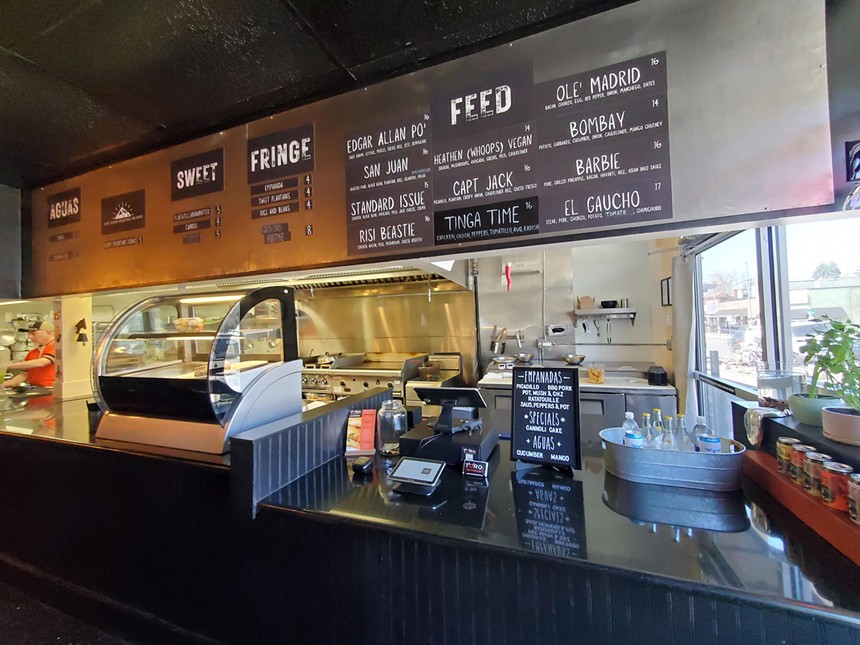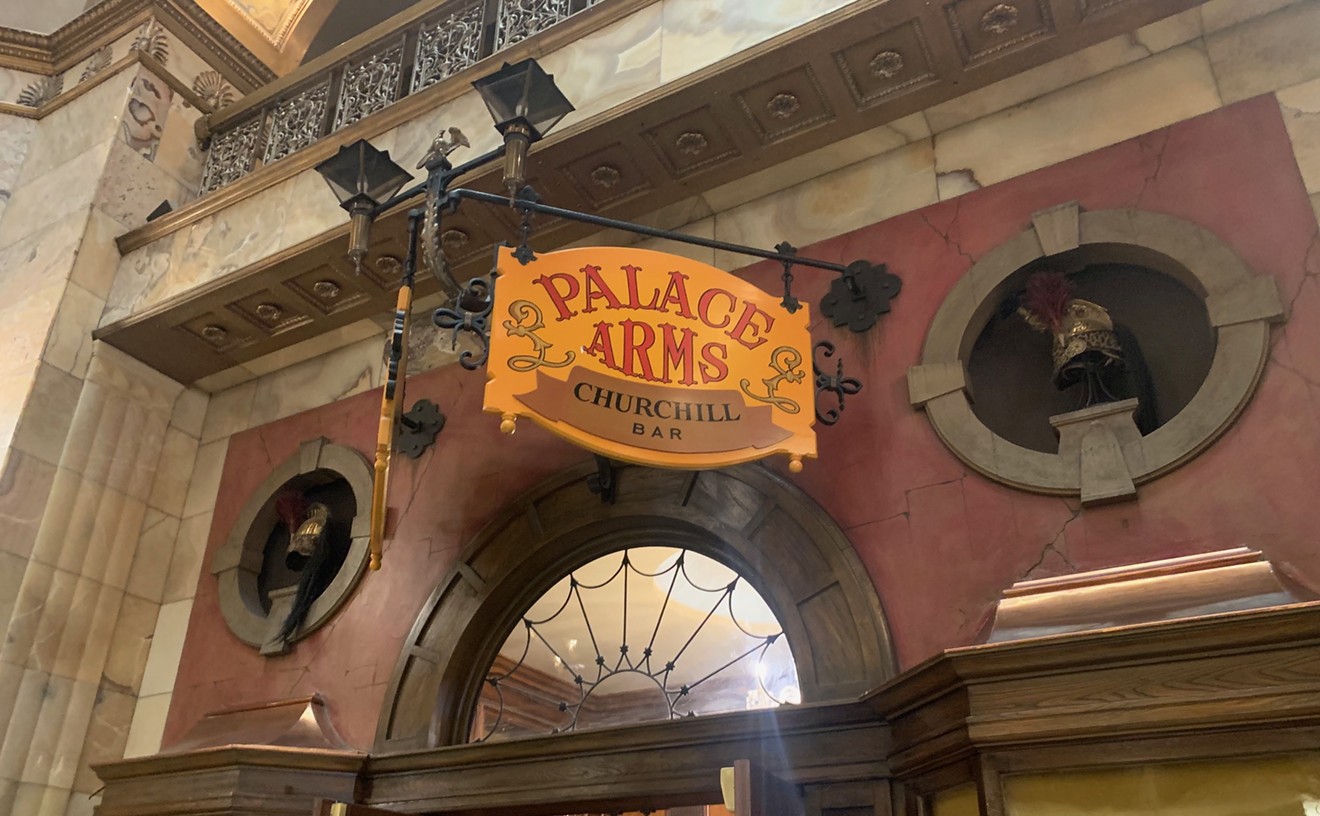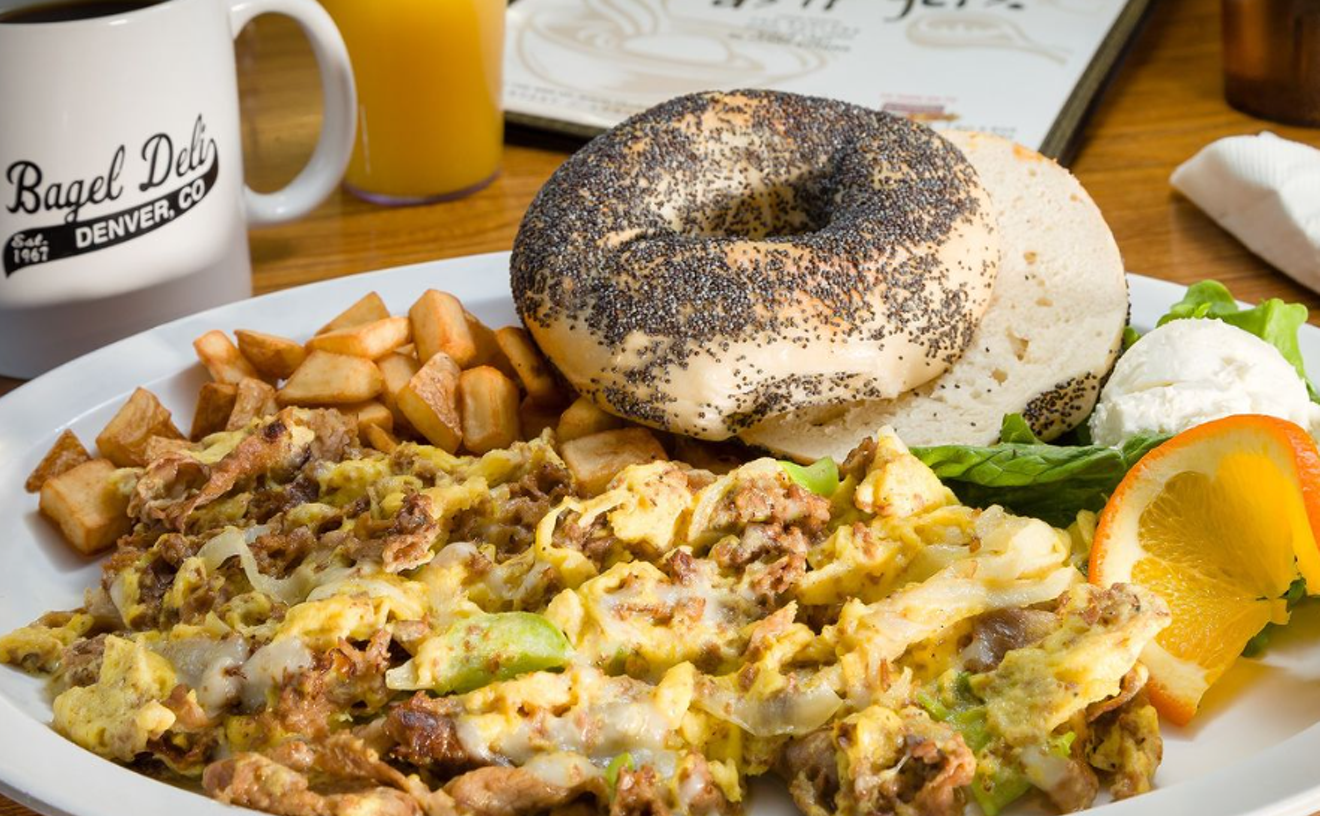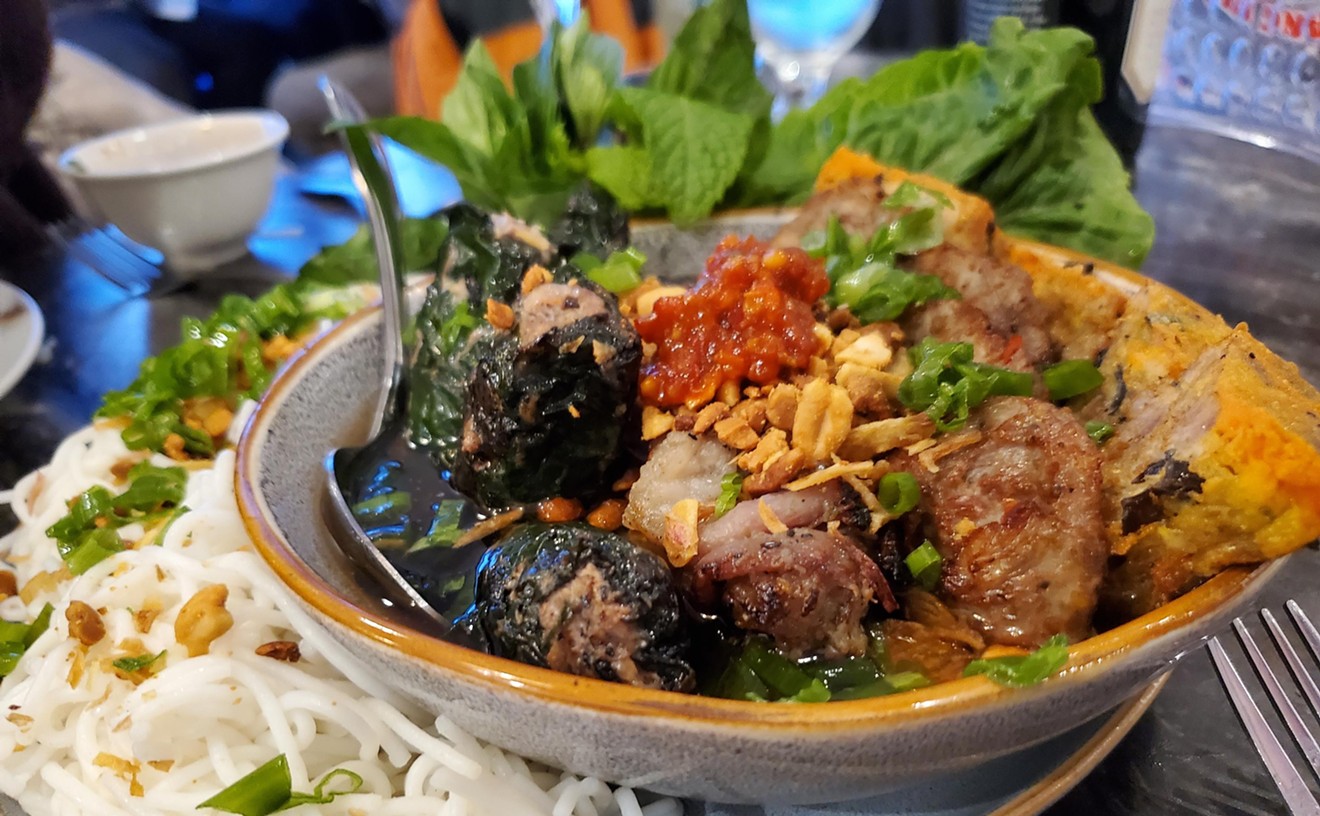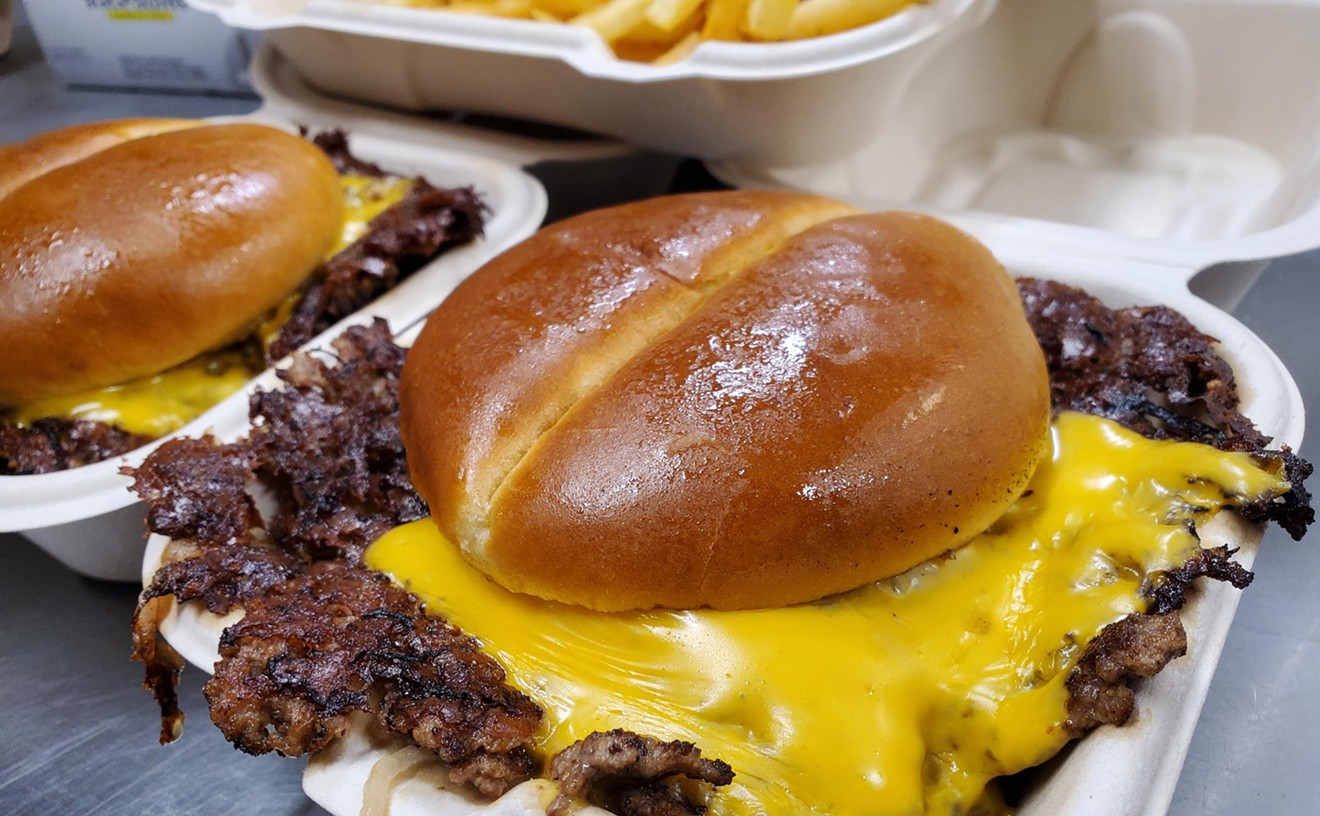But after Toro Food Concepts struggled during its first few months, something happened that many business owners hope for: It went viral on social media.
The boost in attention was sparked by an emotional video posted on TikTok by Giselle Campagna, Carlo's wife and Toro's co-owner, who is also executive director of the GrowHaus, a north Denver nonprofit that works to increase access to healthy foods in underserved neighborhoods. In the video, she talks about how the restaurant was Carlo's dream but says that "things have been really, really slow."
Overnight, the TikTok racked up over 125,000 views; within three days, it had reached nearly half a million people. "It blindsided me," Carlo says of the rush of business that followed. "I don't think Giselle knew what would happen. For three or four days, it was pretty crazy."
Local influencers flocked to take videos of their own, urging followers to show their support, and local media (including Westword) picked up the story. "Every time something like that happened, we'd have a couple of good days — but it didn't sustain," he says.
"It's really bizarre to wrap your head around," Giselle notes, adding that when diners started showing up, "it was magical — it was like dipping your toe in magic, like how is this possible? Then just like that, you were scrolled out."
The experience made her think not just about Toro, but about social media culture as a whole. "It's almost like we're scrolling through our life. We're 3-D scrolling through our transactions and money, and we can't maintain loyalty to anything or anyone," she says.
During the pandemic, there was a huge push, particularly in the dining scene, to support small, local businesses. While that sentiment hasn't fully faded, "I feel like our choices are disconnected with our aspirations," Giselle adds."Especially with social media. I feel there's something wired in us now, to make choices that are unsustainable — they're unsustainable for the environment, they're unsustainable for small businesses. They're like hookups. We're hooking up."
And that's instead of forming long-term relationships with the kind of customers these businesses really need. Restaurant owners like Carlo and Karen LuKanic of Chef Zorba's, a Congress Park staple, don't have a short-term interest in the industry.
"People call it a crush. Some people say it's a disease — you can't get away from the restaurant business," says LuKanic, who's also president/executive chair of EatDenver, a nonprofit that supports the city's independent restaurant community. "It's true — but it's all for the good reasons."
Like Carlo, she's been in the industry for her entire career, mainly working for larger corporations while always keeping a close tie to the operational side. "There's nothing like this business for being active. If I had to sit at a desk all day, I'd rip my head off," she says. But she also recognizes the obstacles facing the industry.
"We're looking for a catering kitchen right now, and we won't even consider Denver," LuKanic admits. "Denver has way, way too many challenges. ... It's always been a tough business, but now it's a tough business and we're not making any money. That's why operators are pulling up shop and going elsewhere."
LuKanic took over the 45-year-old Greek diner in 2018 and became closely involved with EatDenver during the pandemic, when she became "the voice of health insurance" after her employees were left without coverage because they weren't able to work enough hours to qualify when indoor dining was shut down.
Now she spends much of her time talking to other operators, including first-time owners like the Campagnas. While she's grateful for the many regulars she "inherited" when she bought Chef Zorba's, she acknowledges the difficulty that places like Toro face in starting from scratch. "I just don't know if there's enough of a runway for people to start a business and to develop this loyalty," she says.
"You have to spend a lot of money to get visibility," says Giselle, and a viral moment isn't enough to pay the bills for very long.
"People see a busy restaurant like [Chef Zorba's] and they think I'm rolling around in money," LuKanic says. "I have not made a profit since 2019. Our costs have increased so much, and all we're doing is trying to keep our heads above water at this point."
Several factors have hit restaurants within Denver city limits particularly hard, including the sharp increase in minimum wage, which has led many places to experiment with a variety of service charges and pay structures to stay afloat.
That move "wasn't for us," LuKanic says, "but I can see why everybody is scrambling." Instead, Chef Zorba's implemented a full house tip share to create equity among front- and back-of-house wages and retain more staff, which saves on the cost of training new employees. "A $1 increase in hourly pay costs $60,000 in my operation — that's a lot of money. And you get to a certain point where people won't pay $5 for a cup of brewed coffee, so I can't rely on just raising prices; I have to constantly react," says LuKanic, adding that she has been pushing to book parties on weekday afternoons to help generate more revenue.
"Any operator with half a brain wants exactly what the government is trying to jam down our throats," LuKanic notes. "We want our employees to have a living wage. We want them to be working one job. ... The city is misguided. I think they need to spend some time understanding our business model before they make sweeping changes."
According to the National Restaurant Association, "It takes twelve employees to generate every $1 million in restaurant sales versus roughly three employees at grocery, general merchandise and clothing stores," a fact that underlines why an across-the-board minimum-wage increase hits the service industry much harder.
LuKanic says that her property taxes are up 60 percent since 2019 and the restaurant's energy bills have increased 30 percent, adding to the challenges.
At both Chef Zorba's and Toro, an increase in crime has been another problem. "For my specific location, homeless fentanyl dealers who scare away customers 24/7 has been an ongoing issue for years, and absolutely affects the local businesses," Carlo says.
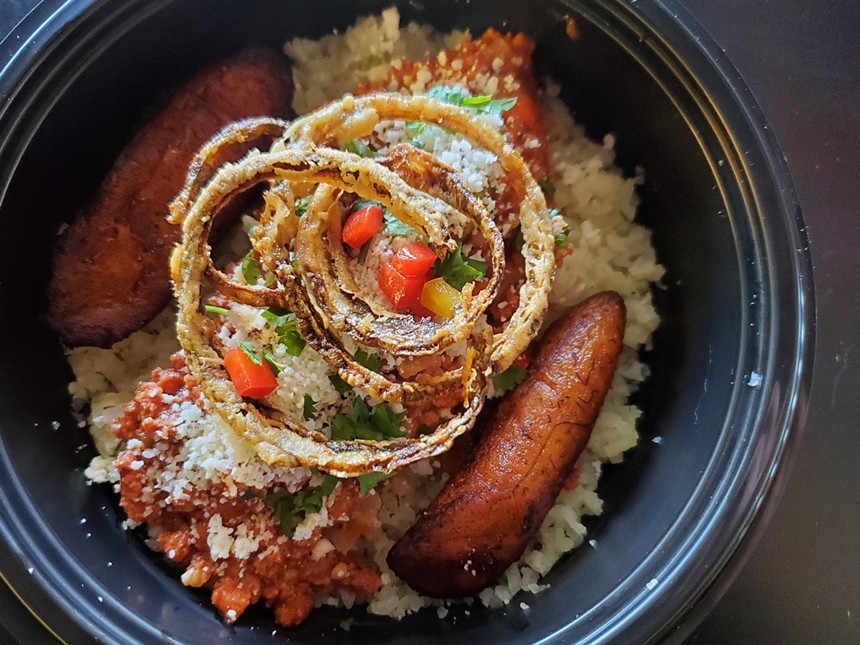
The Capt Jack at Toro comes with cauliflower rice, beef picadillo, sweet plantains, crispy onions and queso fresco.
Molly Martin
Another challenge is the City of Denver's permitting process for new restaurants and liquor licenses, which is notoriously confusing, slow and costly compared to that of metro suburbs. "It is a maze," Giselle says. "Even the people at the Excise & Licenses department were like, 'You have a lawyer, right?'" And that's yet another cost to cover.
Toro took over a former Sexy Pizza location that had been vacant since the summer of 2022. "The space we rented probably should have been condemned," Carlo says. "What I thought would take three months took six or seven months to clean up, so right from the get-go, it was kind of a nightmare." While the first round of inspections were "not that terrible," he adds, securing a liquor license has proven to be very frustrating.
Carlo says he decided to add booze in order to attract more business and create another revenue stream, but doing so required another round of inspections, and this time the experience has been anything but smooth. "It took twice as much as we had projected to build the place out," he notes, adding that he's already spent $8,000 to get the liquor license — money that he doesn't really have right now.
But he didn't get the liquor license quickly, either. "It's all paid for — the application, the fingerprinting, and now they're holding me up from getting that money back," he adds. "I'd just forget about this whole thing if they'd give me that money back. It's stressful enough trying to launch a business; this just adds to the stress. ... Maybe they just want to get paid twice."
One of the holdups, he says, was a wrap for the kitchen door that cost $1,500. "Our understanding was as long as there were no words, it did not need a permit. The inspector said it did, so I removed it," Carlo says. As of April 19, he was still waiting for a re-inspection.
As Ryan Huff, marketing and communications director for the Denver Community Planning & Development Department, explains: "In order to obtain a liquor license, inspections are required from the Fire Department, DDPHE [Denver Department of Public Health & Environment], Excise & Licenses and CPD (Building and Zoning). [Toro Food Concepts] installed exterior signs without the required permit. Once the applicant obtains a sign permit and gets final zoning inspection approval, they will have met CPD permitting and inspection obligations."
Adds Eric Escudero, marketing and communications director for Excise & Licenses, "When a business gets a retail food (restaurant) license, there is no requirement for an inspection from the Department of Excise & Licenses. They have to get an inspection from public health, buildings/zoning and fire. But every business that applies for a liquor license is required to get an inspection from the Department of Excise & Licenses. We check for things such as if they have their sales tax license, security alarm permit, if their required floor plan they submitted matches their setup, if alcohol is stored inside their license premise, and a few other things. ... The goal as always is making sure Denver is safe. I am sure nobody wants to deal with multiple inspections, but we are required by law to do these inspections to protect public safety."
He notes that as of April 18, Toro Food Concepts had "passed just about everything required, except there is a city requirement through the Department of Community Planning & Development (zoning) for a permit for any signs. ... The Department of Excise & Licenses is always the last inspection after all the other required inspections have been passed. It looks like this business is really close, with the sign issue the holdup until our team can conduct the final inspection and get them their liquor license."
"Who has to go through two rounds of inspections? They want us to provide jobs, to provide vitality — something doesn't add up," counters Giselle, who is better connected than most new restaurant owners because of her work in the nonprofit sector, but has still struggled to navigate Denver's system.
"Everybody who is in expansion mode is expanding outside of Denver," LuKanic notes, citing examples like Blue Pan, which debuted its third location in Golden, and Little Man Ice Cream, which just opened in Greenwood Village and will add a Littleton outpost this summer. Brand-new concepts are opting for the suburbs, too, including Oliver's, an Italian joint from the owner of Blue Island Oyster Bar who chose a Greenwood Village space in a King Soopers shopping center.
These moves are great for the metro area as a whole, since many of the suburbs have long been dominated by chains. But what does it mean for the future of dining in Denver itself — and for those who are currently struggling to stay open in the city?
"What crushes me is that when you talk about somebody who really has a passion for this business, failure is not an option," LuKanic says. "So many of us have leveraged our homes. We've walked away from higher-paying jobs. How many people can hang on?"
"We have our home on the line — most chefs do," Giselle says, adding that Carlo has also put incredible time and energy into creating a place that "is literally him," from the globally inspired ingredients to the murals he's painted and the playlist that's an homage to his passion for music as a former longtime member of itchy-O.
"This is valuable work: Food brings us together, food breaks down barriers," Giselle adds. "We are so grateful to everybody who paid attention. But to us, it's more like, pay attention to us," Denver's independent restaurants as a whole.
"Denver is a community that demands vitality and an eclectic scene," she concludes. "Are we supporting that?"
Editor's note: Toro Food Concepts was issued its liquor license on Tuesday, April 23.


